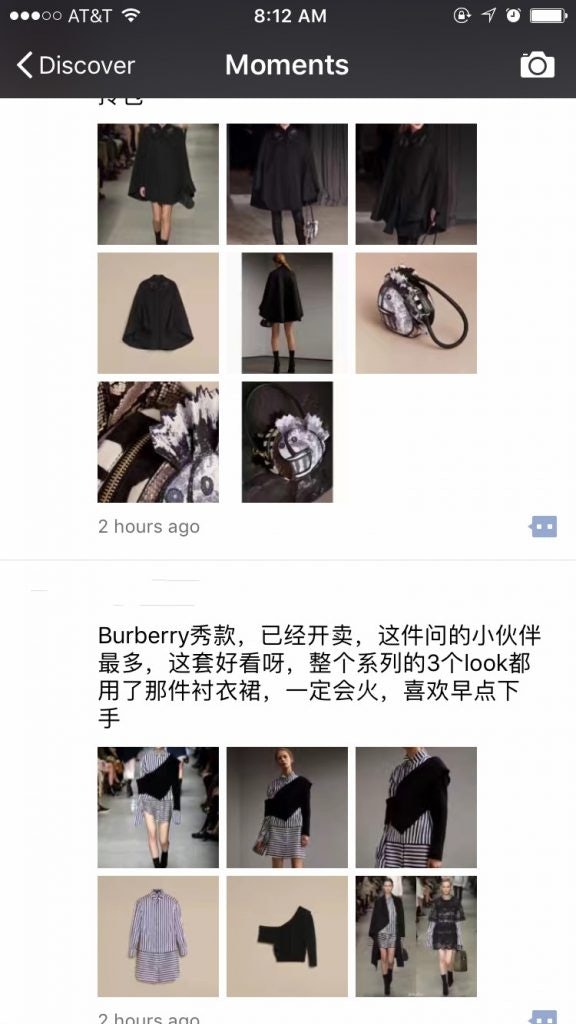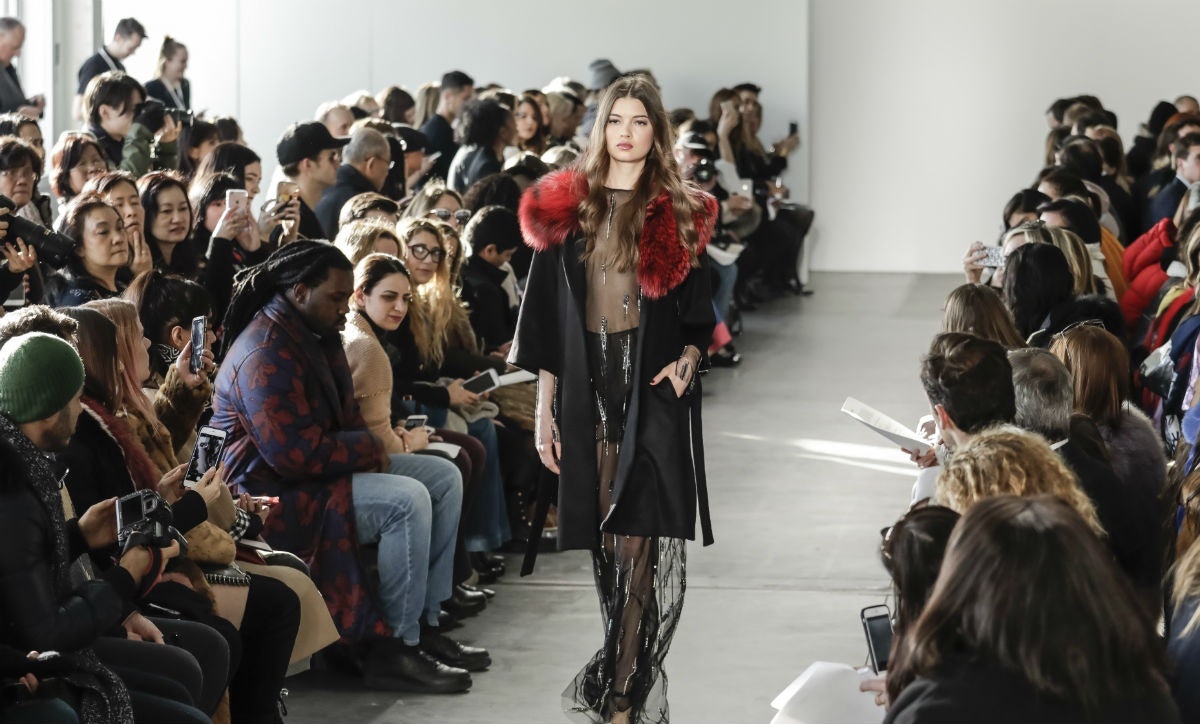It is no longer surprising to see Chinese celebrities and fashion bloggers flocking to international fashion weeks, where they can improve their domestic reputation. But there is another group aiming to cash in on these events: overseas purchasing agents, or daigou, who are significant players in China’s online luxury gray market. For daigou, fashion weeks are becoming critical for establishing a rapport with their customers in mainland China.
As the Chinese government continues to try to encourage domestic spending and shift the country’s economic growth model to a consumption-driven one, they have made significant efforts to crack down on the illicit daigou practice. While this makes the lives of daigou shoppers more difficult, the demand to purchase luxury goods overseas in order to exploit price differences is still high among Chinese luxury shoppers. With the anti-graft campaign, luxury brands’ efforts to standardize global pricing, and continuous doubts regarding the authenticity of their goods, the daigou circle is desperate to prove the value of its existence, as well as retain and nurture loyal customers.
For daigou shoppers, attending fashion weeks around the world can add a layer of authenticity to their business. “I can gain customers' trust and stand out among my competitors,” one daigou shopper, Xiaoling Tang said. Tang is based in New York, and she has been engaged in the daigou business for more than a year with her friends who live in Shanghai, Beijing, and Paris. She said that attending luxury brands' fashion shows is solid proof to her customers that what she buys for them is not counterfeit.
For years, Chinese daigou agents have had difficulties assuring their customers their products are authentic as counterfeit culture prevails in the industry. They have thus come up with various solutions, including live-streaming their shopping processes and sending back official receipts to their clients. Tang said she did not feel comfortable revealing how she gained invitations to shows, but one likely way she and other daigou shoppers do so is by buying large amount of products in the brands’ stores so that they are officially invited to attend the shows as the top buyers of the year.
The enthusiasm the daigou circle has for international fashion weeks is not solely due to the authenticity and professionalism these events can offer their business. They also can benefit from the 'see-now-buy-now' trend among luxury brands and Chinese consumers. Shanghai-based daigou agent Ruby Han has already begun promoting the Spring/Summer 2017 ready-to-wear collection that Burberry launched at London Fashion Week on her WeChat account. Her Chinese customers have already asked whether she could buy Burberry’s latest products for them. “We need to act swiftly, otherwise, our competitors will get the deals,” she said.

Daigou shoppers' presence at international fashion weeks is a new trend, but "is also a natural development," said Steve Dickinson, an attorney with Harris Bricken and a regular contributor to China Law Blog. "The daigou started with serving customers in China who knew exactly what they wanted and were merely placing very specific orders. This moves beyond that, to providing information to Chinese customers, rather than just providing the products. That is, the Chinese customer is not relying on advertising from the luxury retailers, but are pushing out ahead of advertising to seize on the absolutely latest trend."
Dickinson said Han's role has gone far beyond her traditional responsibilities as a daigou seller, and instead she has become an expert consultant for her clients on what is going on in the high fashion world.
Han said that even though some of her clients are already in tune with the newest and hottest luxury trends, the majority of them view her as an opinion leader. "I have joked with my [daigou] partners that it [the daigou business] will become harder and harder if we do not have good fashion sense," she said.
The rising popularity of international fashion weeks in the daigou circle may raise alarm bells for brands, as the existence of the market has long been a headache for luxury brands who want to gain control over their profits. Additionally, prioritizing daigou shoppers as VIP customers who gain free passes to fashion weeks may mean brands have more complex realities to grapple with when it comes to customer relationship management.
The immediate impact of this phenomenon is currently difficult to measure, but Dickenson said it could also teach brands a thing or two about emerging, albeit very small, markets in China. "The Chinese individuals who are pushing ahead to the new and untested are a different group of buyers," he said. "They are not a replacement for the traditional group but perhaps an extension of that group. I imagine that they are also young and less constrained in their tastes."
